Content warning: This article includes references to sexual violence.
The 19,000-mile Pan-American Highway runs from Argentina to Alaska, uninterrupted but for a stretch of dense jungle between Colombia and Panama known as the Darién Gap. For 66 miles, there are no roads—only treacherous forest, cliffs, rivers, and muddy swamps. Despite the risks, thousands of people attempt this crossing every day on their long journey north to seek a better life.
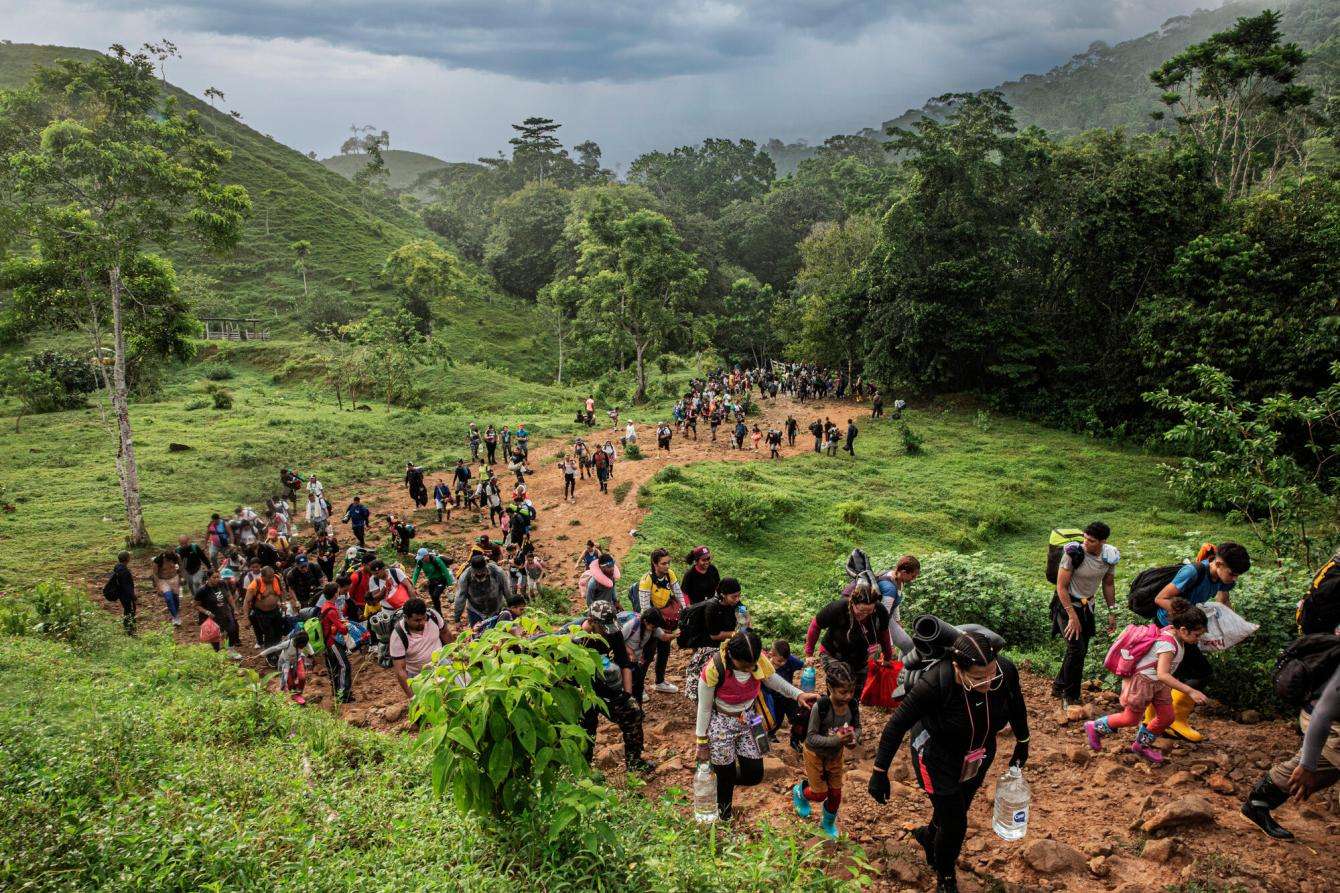
In recent years, Doctors Without Borders/Médecins Sans Frontières (MSF) staff in Mexico have cared for people fleeing conflict, poverty, and repression in countries throughout the Americas, including Venezuela and Haiti, but also from as far away as Africa, Asia, and the Middle East. Their journeys are typically long and complex, with many stops, multiple modes of transportation, frequent roadblocks, and detours, with limited to nonexistent access to health care along the way. Often lacking any protection from authorities, migrants, refugees, and asylum seekers are uniquely vulnerable to violence and abuse.
While our teams continue to work in Mexico and other locations along migration routes, Panamanian authorities forced MSF to suspend medical activities in the country in March 2024. On average, our teams provided physical and psychological care to nearly 5,000 people a month at two clinics, with an emphasis on caring for survivors of sexual violence.
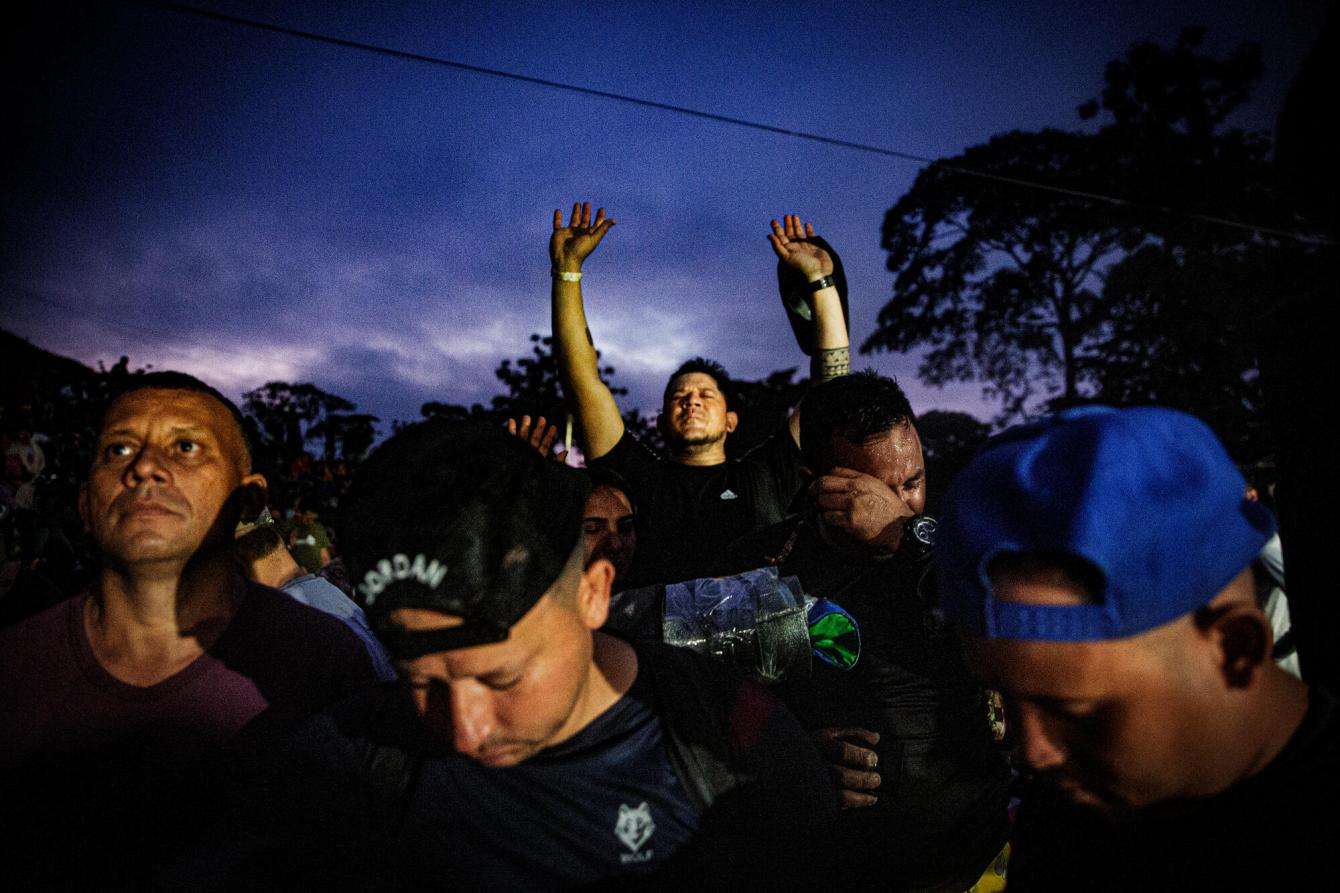
MSF helps people on the move along the migration routes in Mexico and in areas of Central and South America. Our teams in Mexico treat survivors of sexual and gender-based violence, people targeted for their sexuality or gender identity, families whose children were pressured to join criminal organizations, and people driven to escape extreme poverty. We provide or connect many patients with basic medical and mental health care services. For a smaller number of people who have survived torture or extreme violence, we provide longer-term care, including specialized medical and mental health treatment and social services, at our Comprehensive Care Center, known as El CAI, in Mexico City.
Once people reach Mexico’s northern border with the United States, they often end up stranded in tents or shelters in dangerous border cities, at risk of violence and extortion at the hands of gangs as they wait for weeks or months for a chance to legally enter the US. MSF also cares for people waiting to apply for asylum at the border, and in Mexico City. Our teams across the region witness every day what people on the move face on their journeys.

"We crossed the jungle looking for a better future—not for our lives to end. A snake does not end your life. Your life is ended by the men inside the jungle who rape and kill."

"They find people dead—pregnant women are found floating in the water, dead. A man in my group had a seizure and died and we had to abandon his body. There is a lot of robbery in that jungle too. They kidnap people, they charge US $100 per person, and if a woman doesn't pay, they rape her."

"They find people dead—pregnant women are found floating in the water, dead. A man in my group had a seizure and died and we had to abandon his body. There is a lot of robbery in that jungle too. They kidnap people, they charge US $100 per person, and if a woman doesn't pay, they rape her."

"In Peru, we were going to get on a tractomula [a double-trailer truck] and a man on it tried to hurt us with a knife. Then in Ecuador, we were sleeping in a park, and a police officer woke us up with pepper spray to make us get up from there."
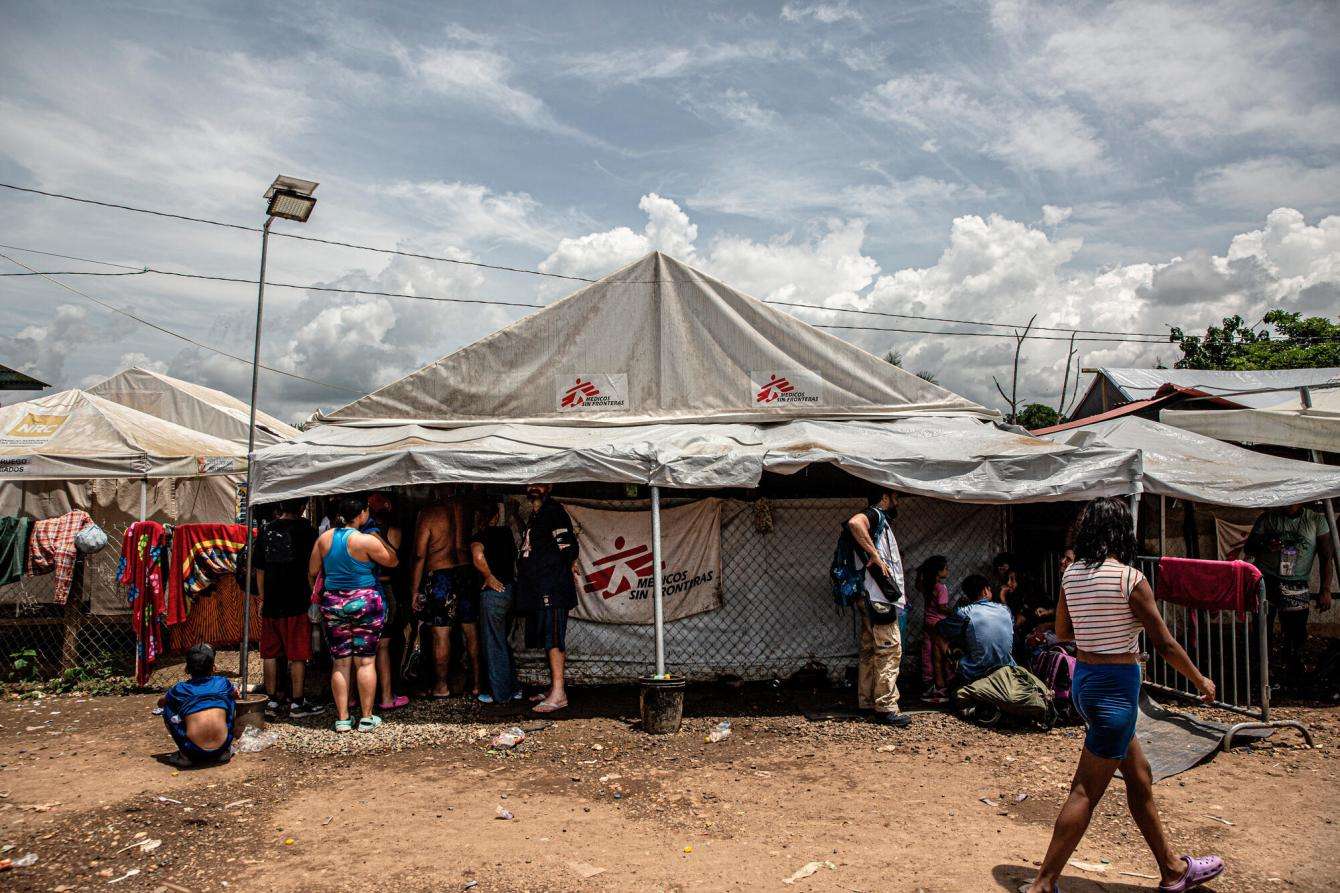
"From Peru, I caught a bus that took me to Huaquillas, in Ecuador. There, some men took 10 of us and stole all our money. They made the women undress. They also took our phones and told us that if we said anything, they would kill us. They had knives and guns."
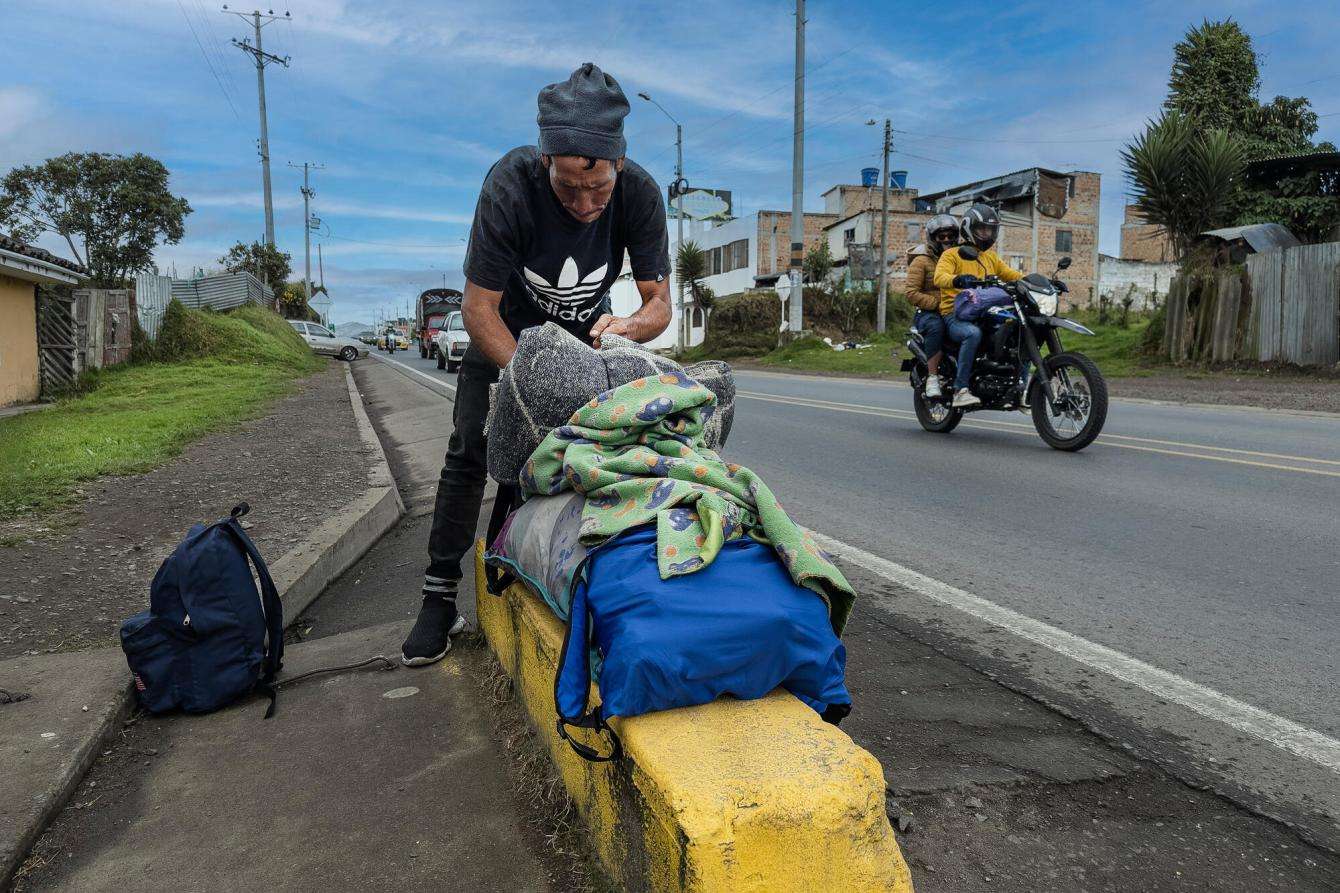
"The Darién jungle is the worst thing I have experienced in my life. I wouldn't wish it on anyone. We climbed too many cliffs. All our fingers are peeling with bloody sores. At a waterfall, after we had passed by, a man died."
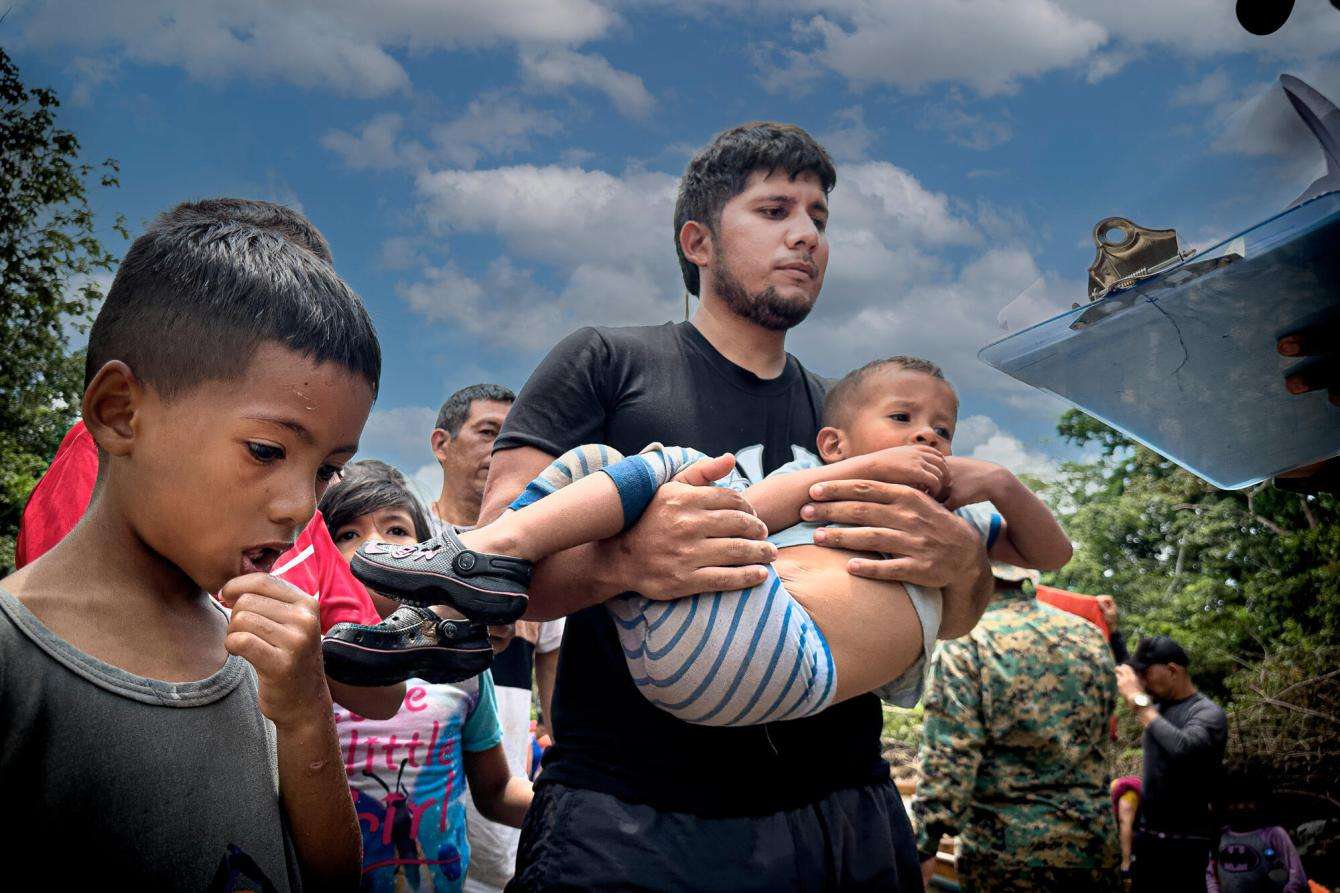
"We were kidnapped, and that's when the worst started. They took us to a house where they separated us into men and women. We had to stand because there was no room for more people. At night some men came and took only the women out of the house. They raped us continually, one after another. They had no mercy."
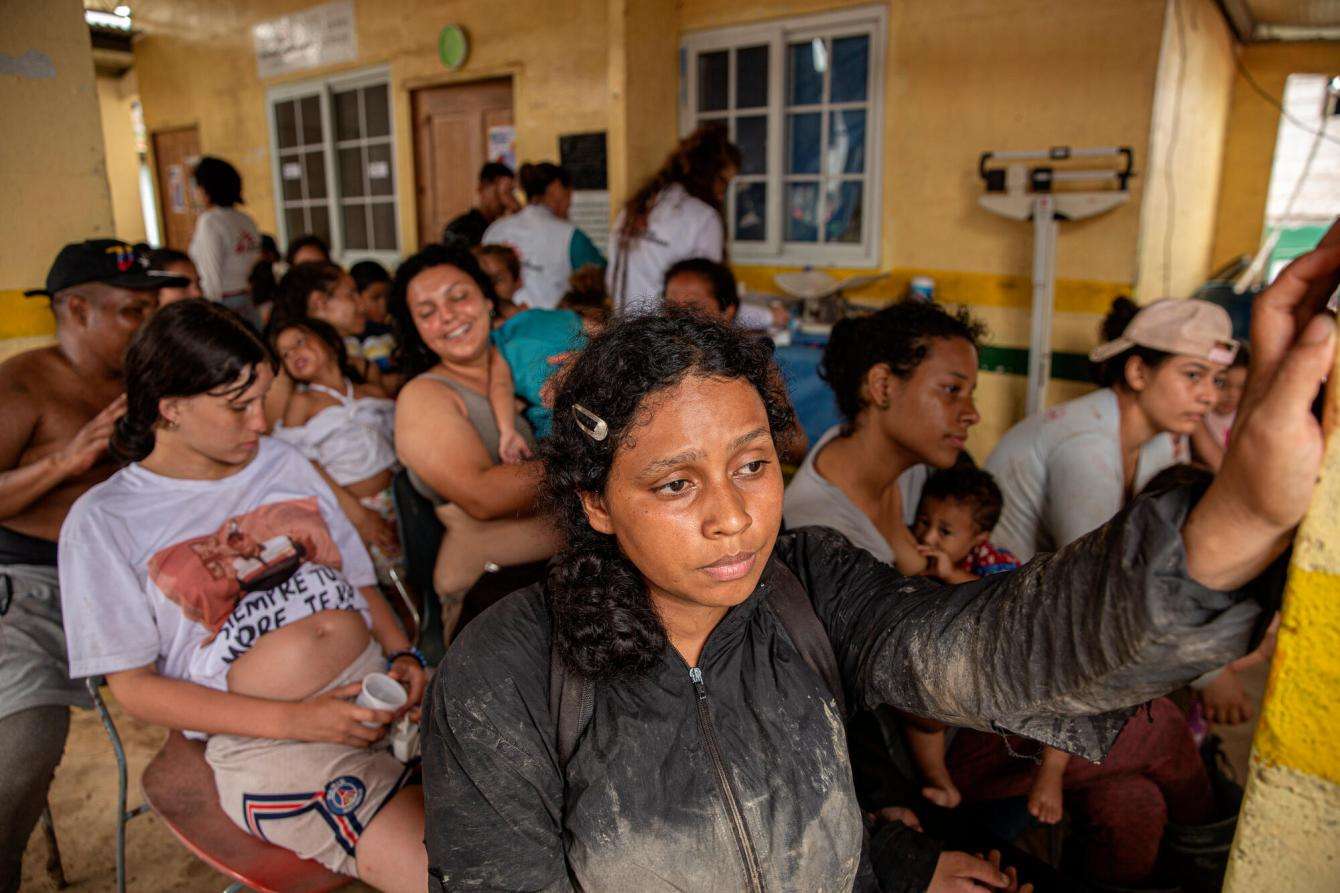
"Many of us had everything we needed. But suddenly found ourselves with nothing but a little bag of dreams to hold onto as we seek to work and rebuild our lives."
More from this issue of Alert
June 07 09:00 AM
The most dangerous place in the world to be a child
The impact of war on Gaza's children
Read More
April 19 01:47 PM
Saving lives is not a crime
Tommaso Fabbri, MSF’s former head of mission for search and rescue, on a legal case dismissed after seven years in limbo
Read More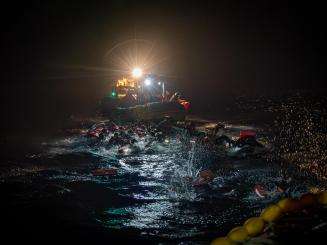
June 07 09:00 AM
One year of catastrophe in Sudan
A cross-country journey during a war that has created the largest displacement crisis in the world
Read More
June 07 09:00 AM
A lesson in climate solidarity from the flooded marshlands of Old Fangak
MSF teams are witnessing firsthand how climate change is already impacting people’s health around the world
Read More

Alert Summer 2024
Connecting Threads: Displacement, Conflict, and the Human Stories That Link Us




